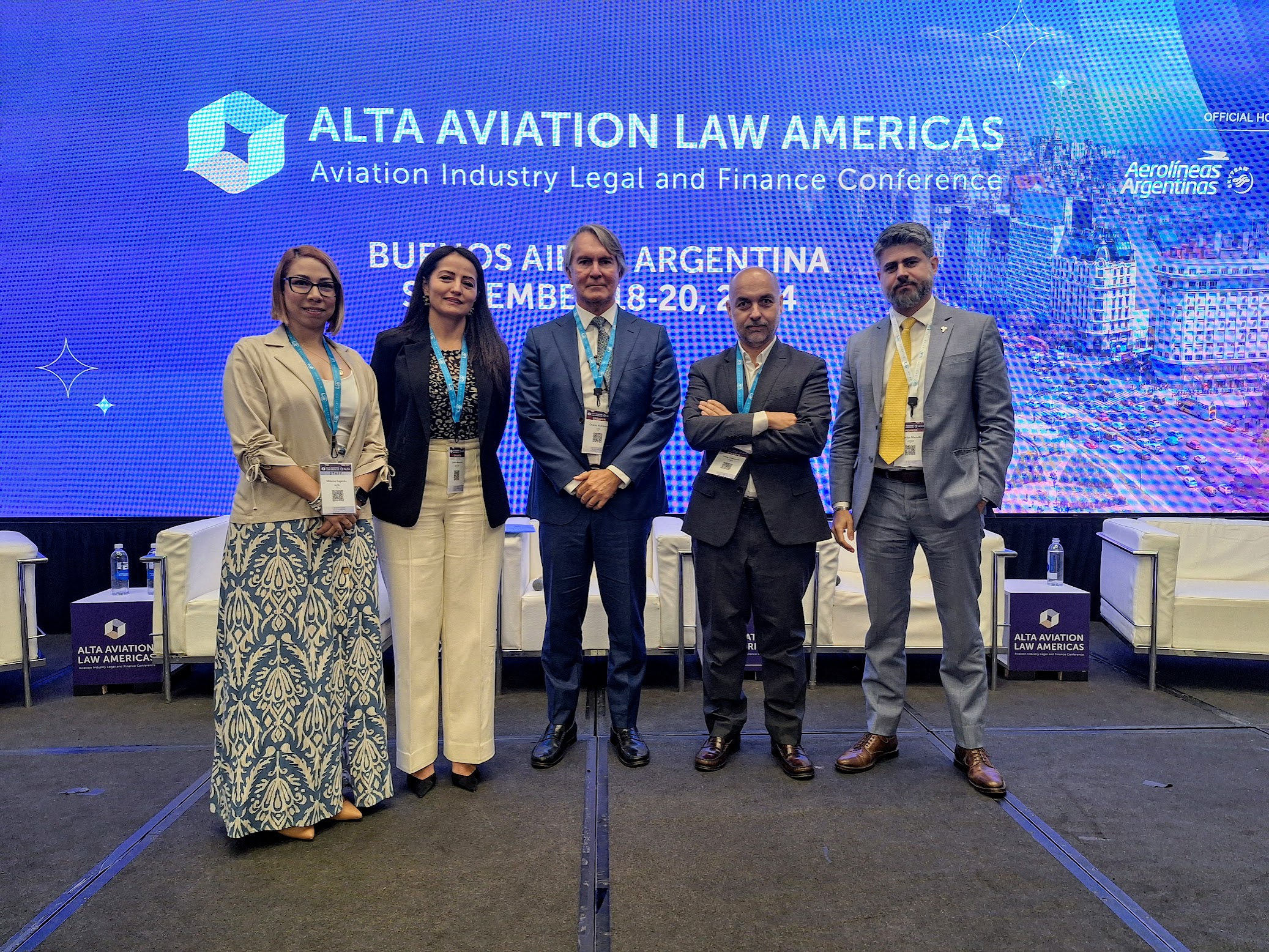Sustainable Aviation: SAF and Regional Cooperation
Experts have discussed strategies and legal implications at ALTA Aviation Law Americas 2024
September 24, 2024

Panama, September 24, 2024 – The sustainable future of aviation was at the center of discussions during ALTA Aviation Law Americas, with the panel "Overcoming Environmental Challenges in Aviation." Experts discussed advancements in the availability of Sustainable Aviation Fuel (SAF), the industry’s environmental commitments, as well as the legal implications and the need for regulatory harmonization, which are key to ensuring an effective transition in the aviation sector.
Milena Fajardo, ALTA's Director of Fuels and Sustainability, moderated the panel and emphasized that, to address aviation's environmental challenges, it is crucial to prioritize SAF incentive policies rather than mandates. "Latin America and the Caribbean face specific circumstances such as pollution trajectories, purchasing power, and the level of passenger traffic that accounts for only 5.8% globally – making it necessary for our countries to implement differentiated roadmaps from other developed states. Therefore, authorities must consider all necessary aspects so that public policies are the most aligned with local realities," Fajardo added.
The need for cooperation between industry and governments was reinforced by Oracio Marques, IATA's Regional Director of External Affairs and Sustainability for Latin America and the Caribbean. He explained that this partnership is essential to overcome regulatory and operational challenges, promoting the use of SAF as a key component in the environmental roadmap. "We need to align PAS production regulations in countries such as Brazil, Paraguay and Colombia, ensuring that the certification of raw materials complies with international sustainability standards".
Carolina Betancort, Manager of New Renewable Business at BioD S.A., highlighted Latin America's potential for SAF production, given its access to raw materials. According to Betancort, a strong regulatory framework, financial incentives, and public-private partnerships are essential to make these projects viable in the region.
The relevance of ESG diagnostics in creating regulatory frameworks tailored to each country's realities was addressed by Eliseo Llamazares, Partner and Aviation Leader at KPMG. "Today, the need for international financing and favorable fiscal policies to make SAF projects viable in Latin America points to legal uncertainty as a challenge that must be overcome to attract investors."
For Eduardo Macedo, Director of Public Affairs and Institutional Relations at LATAM Brazil, regional integration represents a competitive advantage for Latin America and the Caribbean. However, the estimated cost of SAF production remains high. "The sector is committed to achieving net-zero emissions by 2050, and we are participating in several initiatives to tackle this challenge. While significant, we must also consider other measures such as operational efficiency, air traffic optimization, new technologies development, and especially carbon offsets to achieve neutrality."
Despite the significant challenges, experts highlighted that Latin America has enormous potential to lead the transformation of sustainable aviation. With vast natural resources and privileged access to raw materials, the region could become one of the world's main hubs for SAF production. However, to realize this potential, it will be necessary to overcome regulatory and economic barriers, such as creating robust legal frameworks and offering tax and financial incentives.


























